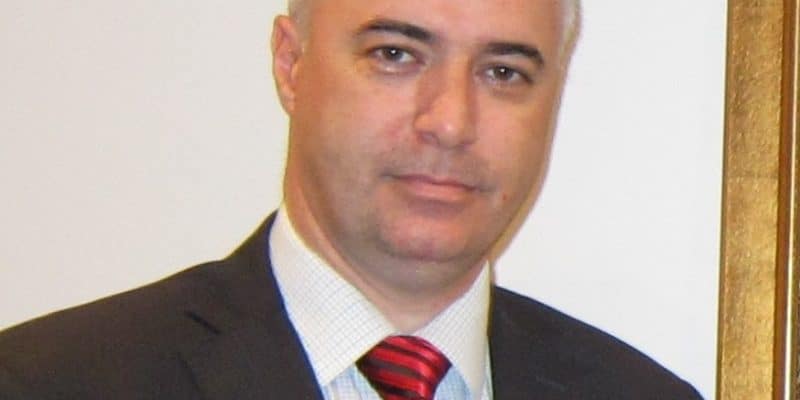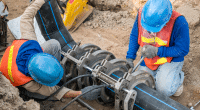[COMMUNIQUÉ] "Advanced Enviro-Septic" hits the spot among domestic wastewater treatment processes. Biological, passive and autonomous, this system proves to be of excellent quality, price and durability. As the device is completely underground, it allows very aesthetic installations. It is energy efficient and requires no special maintenance. In the following interview, Habib Merabet, exclusive representative of "Advanced Enviro-Septic" in Africa, explains this process, which has stood the test of time in North America, Europe and Africa...
You have introduced a wastewater treatment system in the Maghreb using the “Advanced Enviro-Septic” process. What exactly is it about?
“Advanced Enviro-Septic” is a domestic wastewater treatment process invented by an American company and perfected by the Canadian company, DBO Expert International Inc. The Canadian side has notably improved the wastewater treatment system. This is one of the very few domestic wastewater treatment processes that permanently meets 7 operating conditions:
- Does not require any energy input.
- Or chemicals.
- No special maintenance.
- Does not release waste (especially sludge).
- Eliminates odours from wastewater.
- Operates without noise.
- Makes it possible for the land occupied by the wastewater treatment plant to be used in the garden or on a sports ground (or other, without heavy machinery).
For what result?
The results at the station outlet are outstanding, including for highly charged wastewater at the station inlet. Indeed, more than 96% of the water from such a system is treated and is excellent for irrigation. In fact, the Advanced Enviro-Septic system only reproduces in a very effective way the natural purifying phenomena of water that exist in nature.
For how long will the system last?
We use plastic which is the most suitable product, with a rather long life in the ground: more than 220 years. The “Advanced Enviro-Septic” system therefore has a lifetime of more than 50 years. Besides, a 20-year guarantee against manufacturing defects is systematically given to customers.
You were talking about a natural system. So it’s a kind of biomimicry… how does it work, technically?
It is indeed the reproduction of a natural phenomenon that has been and still is on the planet Earth for thousands of years. Indeed, in nature, there are bacteria that assimilate pollutants. The “Advanced Enviro-Septic” system creates favourable conditions for anaerobic and aerobic bacteria to grow in and around the pipe. These bacteria have a living space there, made up of oxygen dissolved in the water and “food”. They simply feed on the pollutants that are present in our wastewater. We have optimised this phenomenon to achieve breathtaking treatment rates. Today, we have more than 30 years of experience and the process still has no defects or malfunctions. Nature always takes back its rights and therefore the system cannot be caught in trouble for long. It resumes its function relatively quickly, even if it is subjected to external aggression, such as product injections or any other exogenous intervention.
Where did you sell this system?
It has been available in Morocco since 2013, initially through the DBO Expert company, then through the Moroccan company DBO Expert Maroc. We are currently on our fifth project. The Canadian company markets the process in France, through DBO Expert France, and in Algeria through its exclusive distributor SARL Envirostep. The latter has carried out several projects with Sonatrach, Naftal, Wilayas’ water resources departments and private organisations.
What about sub-Saharan Africa?
In Africa, a multitude of requests are received every day by DBO Expert Maroc and SARL Envirostep: from Ivory Coast, Senegal, Gabon, Burkina Faso… Our principle is to develop marketing with a local brand, who has an exclusive distribution system. For housing projects with less than 80,000 inhabitants, the system proposed by “Advanced Enviro-Septic” is unbeatable. It requires no pumps, machinery, products, energy or anything to fulfil its processing function. It works on its own!
In large cities, activated sludge treatment plants are commonly used. An efficient solution, but very energy consuming and quite expensive during all the operating time. This process mainly concerns large cities and conurbations. It is applied in places with a high population concentration, with more than 100,000 inhabitants. Below that size, the system is no longer really economically viable.
You are therefore operating below 100,000 inhabitants?
Yes, as soon as we are at the peri-urban or rural level, it becomes inconceivable that the State would make major investments to treat quantities of domestic wastewater that are significantly lower than those of a large urban area. The “Advanced Enviro-Septic” process then appears to be the appropriate solution. As we can see in North America, and in Europe, Belgium and France in particular.
Is the treated water used for irrigation?
Yes, this is one of the advantages of our solution because, to obtain water that can be reused for irrigation, for example from an activated sludge treatment plant, it is necessary to add tertiary treatment. This remains very expensive in terms of energy, throughout the entire operation, and in terms of spare parts. In fact, these are projects that consume a lot of financial resources for a minimal result from a qualitative point of view. They are suitable for large cities with large budgets.
For small and medium-sized urban areas, rural areas, scattered areas, the Advanced Enviro-Septic system is now the ideal solution! It is a system that fully complies with the recommendations of the last two United Nations reports, 2017 and 2018, on the management of water resources in the world. The first, that of 2017, recommends that priority be given to decentralising treatment centres by using small treatment plants, thus achieving savings of at least 50% in basic investment and 25% in operation. The second report, the 2018 report, recommends the use of natural processes. Enviroseptic is an excellent one, and it works in all circumstances.
Is the process used in other countries?
Of course! The process is approved in the United States, Canada and Europe, Belgium and France. This system has been in common use in North America since 2000 and has more than 150,000 installations in North America and more than 6,000 in Europe with near-zero failure. In France, we are implementing an average of three to four installations per day.
How is this technique being applied in Subsahara Africa?
The development of the process in Canada is done by sharing experience and introducing companies specialized in the hydraulic sector to the use of such a system. All this is done in a spirit of knowledge sharing and economic success.
In Africa, the strategy would rather be to adopt the principle of social and solidarity-based entrepreneurship, in the sense that it is necessary not only to share experience with young local companies, but also to transmit and inculcate the reflex of preserving the environment. The populations destined to receive this type of equipment are mostly rural and located in scattered areas. It would therefore be wise to offer this expertise, which remains in the absolute very simple to implement and within the reach of any African. Finally, it is in the genes of our “ENVIRO-SEPTIC” family to systematically transfer the commercialisation of the process to a son of the soil.
So you are looking for a representative for each African country?
Yes, absolutely. He will naturally develop the principles set out above himself, in his own country, in such a way as to benefit himself and his fellow citizens from the qualities of this system.
–––––––––––––––––––––––––––––––––––––––––
Contact: Mr. Habib Merabet, DBO International Expert
Mobile: + 212 661 400 375; email: hmerabet@dboexpert.com




